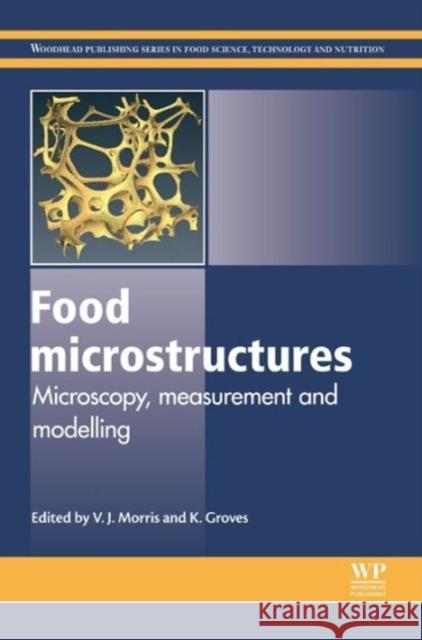Food Microstructures : Microscopy, Measurement and Modelling » książka
topmenu
Food Microstructures : Microscopy, Measurement and Modelling
ISBN-13: 9780857095251 / Angielski / Twarda / 2013 / 472 str.
The development of high-quality foods with desirable properties for both consumers and the food industry requires a comprehensive understanding of food systems and the control and rational design of food microstructures. Food microstructures reviews best practice and new developments in the determination of food microstructure.
After a general introduction, chapters in part one review the principles and applications of various spectroscopy, tomography and microscopy techniques for revealing food microstructure, including nuclear magnetic resonance (NMR) methods, environmental scanning electron, probe, photonic force, acoustic, light, confocal and infrared microscopies. Part two explores the measurement, analysis and modelling of food microstructures. Chapters focus on rheology, tribology and methods for modelling and simulating the molecular, cellular and granular microstructure of foods, and for developing relationships between microstructure and mechanical and rheological properties of food structures. The book concludes with a useful case study on electron microscopy. Written by leading professionals and academics in the field, Food microstructures is an essential reference work for researchers and professionals in the processed foods and nutraceutical industries concerned with complex structures, the delivery and controlled release of nutrients, and the generation of improved foods. The book will also be of value to academics working in food science and the emerging field of soft matter.- Reviews best practice and essential developments in food microstructure microscopy and modelling
- Discusses the principles and applications of various microscopy techniques used to discover food microstructure
- Explores the measurement, analysis and modelling of food microstructures











